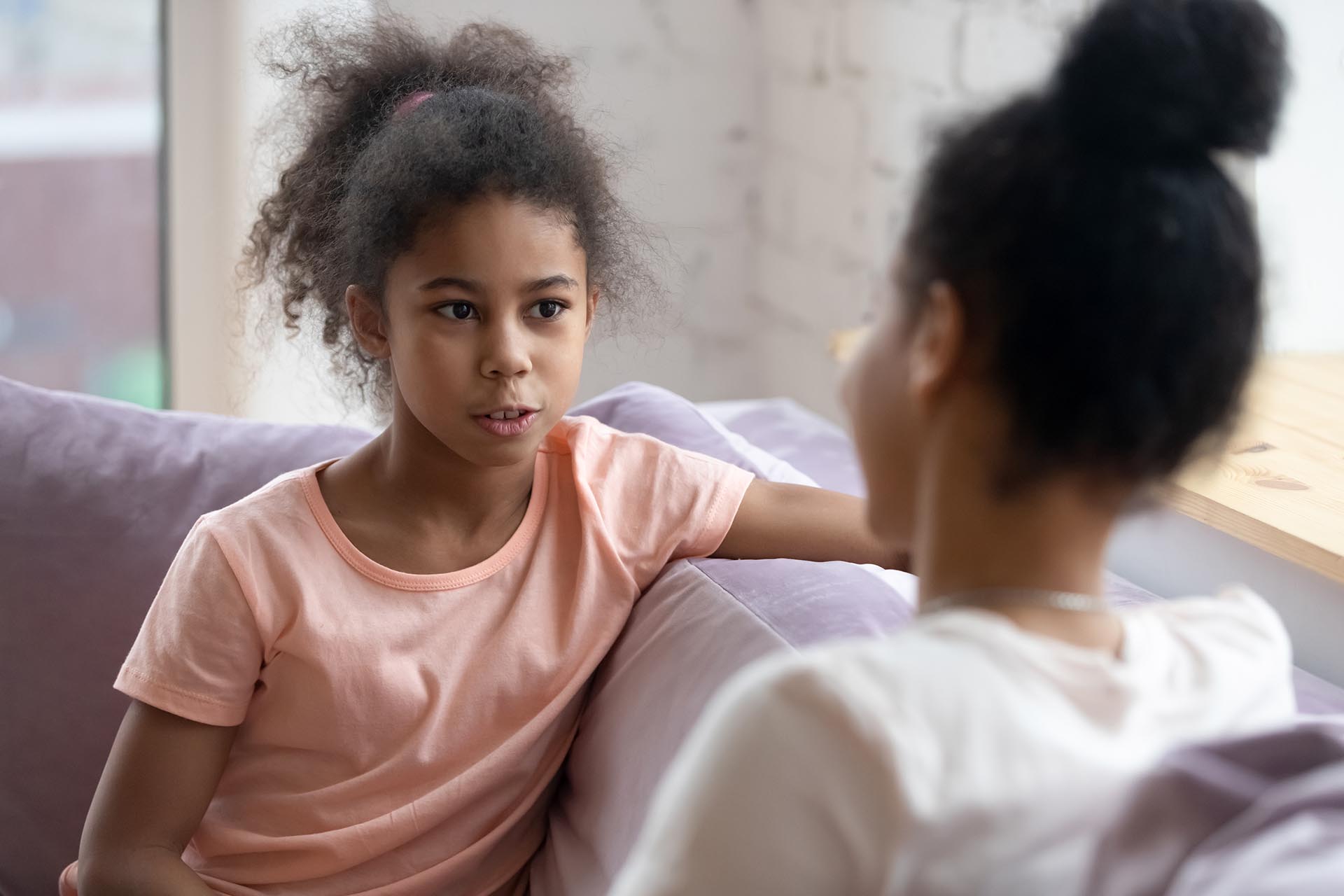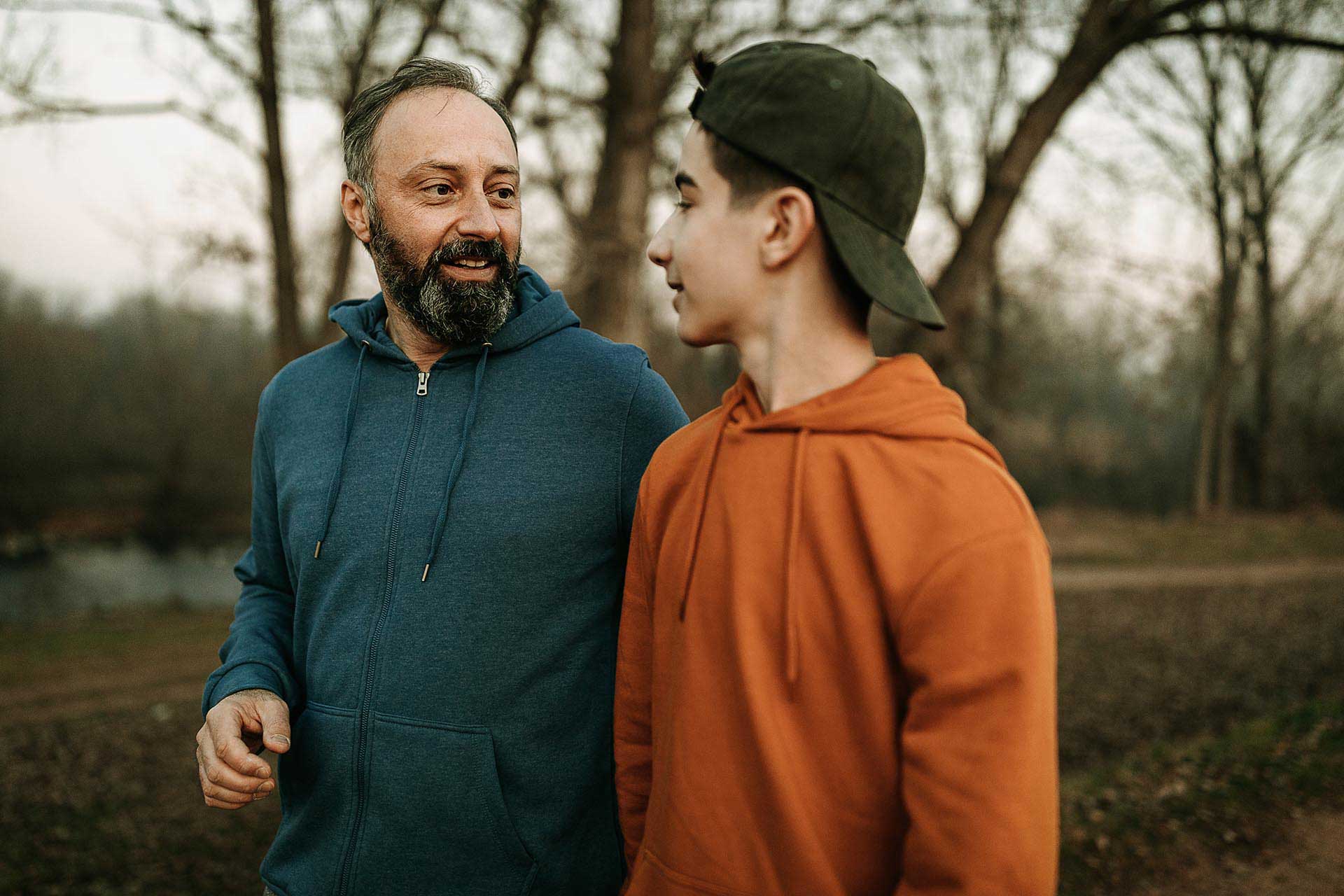How to talk to a child or teen who doesn’t want to listen
As a parent, having a child who won’t pay attention to what you’re saying – or downright ignores you – can be one of the most frustrating feelings in the world. This often comes with adolescence, as young people seek to separate themselves and their identity from the family unit. It can be exasperating, but to them, their own inner life and whatever is going on in their social circle/netball club/video game can just feel more important than what’s on your mind. Some tweens or teens may go through particularly rebellious phases where it won’t matter how good a parent you are. It can even just be a part of brain function, as their frontal lobe still has many years of development to complete (and we all know listening is a skill, even as adults).
Whatever their issue is, it can help to try and understand why your child can’t or doesn’t want to listen. And there are things you can do to reach and engage them – even if they initially don’t want to. It’s also important to remember that there’s a difference between not paying attention and not actually listening, as most kids will be taking on board what you’re saying even if they don’t outwardly show it.
Time your message right
We all want our children to listen to us right away. But if you have something important to say, consider the timing. During a video game, texting session or another conversation may not be the best moment to bring something up. Alternatively, car trips or walks might be good times for conversation. If what you have to say is urgent, you can simply ask if you can have their attention in a few minutes once they’ve finished whatever they’re focused on – which shows you respect their time
Keep important messages clear and concise
No one likes being lectured to. And kids are more likely to feel respected and engaged if we make the effort to demonstrate that we value their feelings, thoughts and opinions. Plus, asking questions is a great ‘in’ for any conversation topic. This can also include offering them a choice between a few options, rather than a command. So, for example, rather than saying, ‘I want you to do the dishes after dinner,’ you can say, ‘If I cook, do you think it’s fair if you do the dishes tonight? If not, what’s another chore that you think would be fair to do?’
Be consistent and repetitive
Important conversations should never just be a one-time-only deal. Speaking often and repeating information will help young people retain key messages and reinforce that you’re always here to talk. Even if it’s something more menial, being consistent in what you want can help get your message through. Asking children to repeat back to you what you’ve said to them can also help improve their active listening skills.
Empathise with them
Remember being young? Not always easy, right? Especially after puberty hits. Letting your young person know you see and understand their challenges helps to break down any walls they may put up. It’s also another good conversation ‘in’ to open the chat by talking about how you recognise what’s going on with them.
Praise and reward active listening
If you have moments when your young person does connect and actively listen to you, show them your appreciation. Thank them for paying attention and taking you seriously. Talk about how they’ve just demonstrated active listening and how it’s an important skill to have as an adult. And if they begin to listen more consistently, reward their good behaviour.
Model good communication skills
We can’t expect our children to behave in positive ways if we don’t model that behaviour ourselves. Of course, we’re not perfect and we’re not always going to get it right. But our children aren’t going to listen to us if we don’t make an effort to listen them and others around us – at least most of the time.
Use books and other resources
So, your child doesn’t want to listen to you? That’s okay, they might take advice from someone else. Leaving an educational book by your young person’s bed is a great way of getting messages to them that you might be struggling to do yourself. Plus, it’s a resource they can always come back to at their leisure, when they’re ready. You can also send them helpful online resources too such as AMAZE’s videos or KidsHelpline.
One great resource we’ve found helpful is How to Talk So Kids Will Listen and Listen So Your Kids Will Talk (what a mouthful!) This is written by Adele Faber and Elaine Mazlish and you can buy a copy here.
In summary, talking to your young person who doesn’t want to listen can look like:
- asking questions
- respecting their time
- sticking to the topic
- asking them to repeat back to you
- recognising their feelings
- praising when they listen
- using books to help educate
Further resources
- check out our fact sheet series ‘Let’s talk’ supporting parents and caregivers with their conversations at home
- our podcast episodes,‘Tricky questions’: parts one and two











